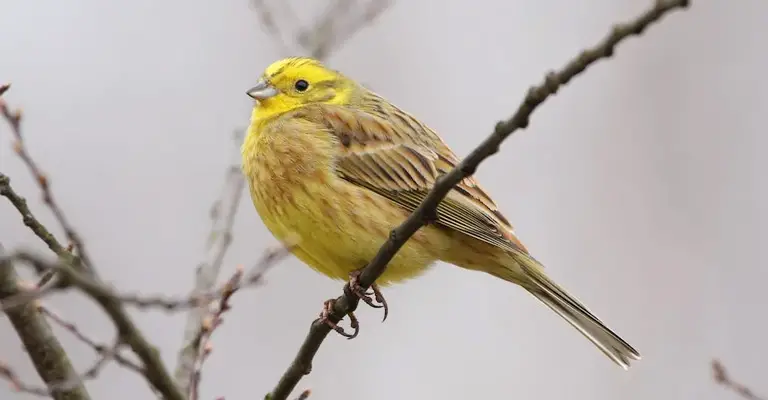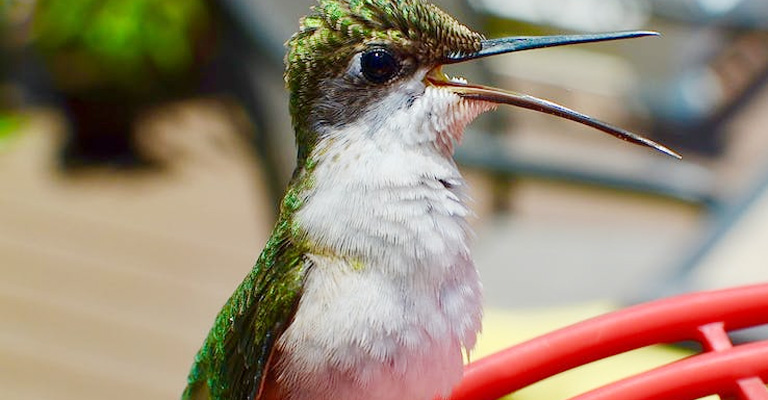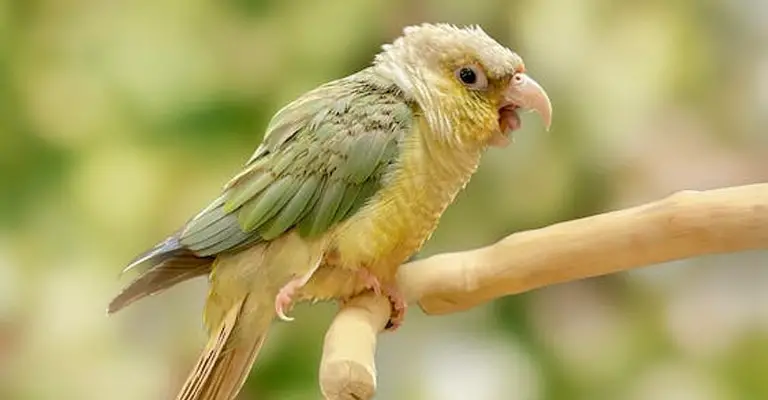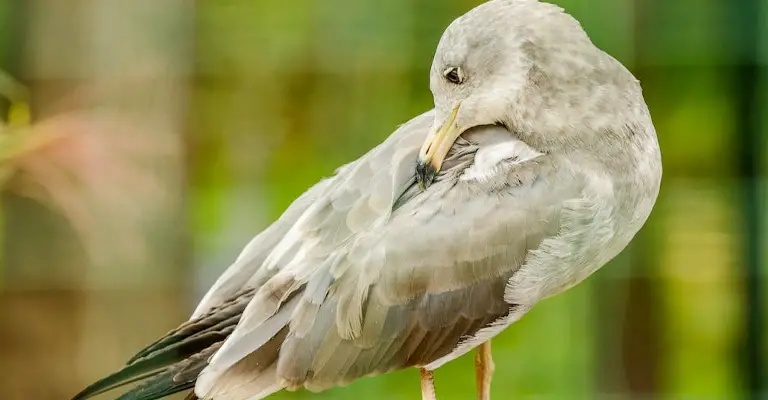Bird owners often form deep emotional bonds with their feathered companions and strive to provide them with the best care possible. One alarming situation that can cause significant concern and anxiety is when a pet bird starts breathing heavily.
Heavy breathing in birds is not a normal or healthy sign, and it could indicate an underlying health issue that requires immediate attention.
Understanding the reasons behind heavy breathing in birds is crucial for providing prompt and appropriate care.
This article explores why is my bird breathing heavy, shedding light on potential health conditions, environmental factors, and preventive measures that can help ensure the well-being of these avian companions.
By recognizing the signs and taking timely action, bird owners can help their pets enjoy a long and healthy life.

Why Is My Bird Breathing Heavy?
Birds, like any other animals, can exhibit heavy breathing due to various health conditions or environmental factors. Here are some common reasons why your bird might be breathing heavily:
Respiratory Infections
Respiratory infections, such as avian flu or pneumonia, can cause heavy breathing in birds. These infections are often accompanied by other symptoms like sneezing, nasal discharge, and lethargy.
Airborne Irritants
Birds are sensitive to airborne irritants like smoke, strong fumes, or dust. Inhaling these irritants can lead to respiratory distress and heavy breathing.
Allergies
Birds can develop allergies to certain foods, dust, pollen, or other environmental factors. Allergic reactions can manifest as difficulty breathing, wheezing, or heavy breathing.
Heart Problems
Heart issues in birds can lead to fluid accumulation in the lungs, causing difficulty in breathing. Common heart problems in birds include congestive heart failure.
Heat Stress
Birds can suffer from heat stress, especially in hot weather. Heavy breathing can be a sign of overheating. Ensure your bird has access to shade, fresh water, and a well-ventilated living space.
Obesity
Overweight birds often struggle to breathe properly due to excess body weight, putting pressure on their respiratory system. Maintaining a healthy diet and regular exercise is essential to prevent obesity in birds.
Tumors or Growths
Tumors or abnormal growths in the respiratory system can obstruct air passages, making breathing difficult for the bird. These growths can be benign or malignant.
It’s crucial to consult with an avian veterinarian if you notice your bird breathing heavily.
They can perform a thorough examination, including diagnostic tests such as X-rays or blood work, to determine the underlying cause of the heavy breathing. Early detection and proper treatment are essential for your bird’s well-being.
What To Do If My Bird Is Breathing Heavy?

If you notice that your bird is breathing heavily, it’s important to take action promptly. Here are some tips on what to do:
Isolate Your Bird
Immediately move your bird to a separate, quiet, and comfortable location within its cage or a hospital cage. Reducing stress and disturbances can help your bird recover more comfortably.
Adjust Temperature and Humidity
Ensure that the environment is at an appropriate temperature and humidity level for your bird’s species. Birds can be sensitive to temperature extremes. Keep your bird in a comfortable and well-ventilated space, avoiding drafts and sudden temperature changes.
Provide Fresh Air
Make sure there’s good air circulation in the room. Avoid exposure to smoke, strong odours, and airborne irritants. Clean the bird’s environment to reduce dust and allergens.
Offer Water
Dehydration can exacerbate heavy breathing. Ensure that your bird has access to clean, fresh water. You can also use a spray bottle to mist the feathers, as some birds enjoy this, and it can help with hydration.
Consult a Veterinarian
Contact an avian veterinarian as soon as possible. They are specialists in bird health and can provide a proper diagnosis and treatment plan based on the underlying cause of heavy breathing. Delaying professional care can be risky for your bird’s health.
Observe Other Symptoms
Keep an eye out for other signs of illness, such as changes in behaviour, appetite, or droppings. Note any coughing, sneezing, or discharge from the eyes or beak, as these symptoms can help your vet in the diagnosis.
Maintain a Calm Environment
Reduce stress for your bird by keeping noise levels low, avoiding handling, and minimizing disruptions. Stress can worsen breathing difficulties, so a calm and quiet environment is essential for recovery.
Remember that heavy breathing in birds can be a sign of a serious underlying health issue.
While these tips can provide initial care and comfort, it’s vital to seek professional advice and treatment from a qualified avian veterinarian to address the specific cause and ensure the best possible outcome for your feathered friend.
What Are The Signs Of Respiratory Problems In Birds?

Respiratory problems in birds can be a serious health issue. Recognizing the signs early is crucial for timely intervention. Here are the common signs of respiratory problems in birds:
Sneezing and Coughing
Frequent sneezing and coughing can be indicative of respiratory distress in birds. These actions may help clear irritants or mucus from the airways. If these symptoms persist, it’s a cause for concern.
Nasal Discharge
The presence of clear or colored discharge from the nares (nostrils) is a sign of a respiratory issue. It could be due to a respiratory infection, allergies, or irritant exposure.
Laboured Breathing
Birds with respiratory problems may exhibit labored, heavy, or rapid breathing. You may notice the chest moving visibly with each breath, and the bird may seem to be struggling for air.
Wheezing or Noisy Breathing
Wheezing or noisy breathing, often audible without a stethoscope, can indicate obstructions or inflammation in the airways. It’s a concerning sign that should be addressed promptly.
Tail Bobbing
If a bird’s tail bobs up and down with each breath, it can be a sign of respiratory distress. This is especially noticeable in smaller bird species.
Decreased Activity and Appetite
Birds with respiratory issues may become lethargic, lose interest in their surroundings, and show a decrease in appetite. This is because breathing difficulties can be exhausting for them.
Change in Vocalization
Some birds may change their vocalizations when they have respiratory problems. They may become quieter, or their voice may sound different due to discomfort.
If you notice any of these signs in your bird, it’s essential to seek immediate veterinary care from an avian specialist. Respiratory problems can progress rapidly, and early intervention can significantly improve the chances of successful treatment and recovery.
Your avian veterinarian can perform a thorough examination, including diagnostic tests, to determine the underlying cause and provide appropriate treatment.
Common Health Conditions Causing Heavy Breathing

Heavy breathing in birds can be a sign of various health conditions. Here are some common health conditions that can cause heavy breathing:
Respiratory Infections
Respiratory infections in birds are often caused by bacteria, viruses, or fungi. These infections can lead to inflammation and blockages in the respiratory system, making it difficult for the bird to breathe.
Common respiratory infections in birds include avian flu, aspergillosis, and respiratory psittacosis.
Air Sacculitis
Air sacculitis is an inflammation of the air sacs in a bird’s respiratory system. This condition can be caused by bacterial or fungal infections and may result in heavy breathing, as the air sacs play a crucial role in avian respiration.
Heart Disease
Heart problems, such as congestive heart failure, can lead to fluid accumulation in the lungs. This excess fluid can interfere with the bird’s ability to breathe properly, resulting in heavy or laboured breathing.
Pneumonia
Avian pneumonia is often caused by bacterial or fungal infections and can lead to the accumulation of mucus and inflammation in the lungs. This, in turn, can cause heavy breathing and other respiratory symptoms.
Tumours or Growths
Abnormal growths or tumors in the respiratory system can obstruct air passages, making it challenging for birds to breathe. These growths can be benign or malignant, but they both affect the bird’s respiratory function.
Allergies
Birds can develop allergies to various environmental factors, including certain foods, dust, pollen, and even household products. Allergic reactions can lead to respiratory distress, which may manifest as heavy breathing and other symptoms like sneezing or itching.
Obesity
Overweight birds may struggle with heavy breathing due to the extra weight putting pressure on their respiratory system. Obesity can lead to reduced lung capacity, making it harder for birds to breathe comfortably.
If you notice your bird is experiencing heavy breathing, it’s essential to consult with an avian veterinarian.
They can perform a thorough examination and run diagnostic tests to determine the underlying cause and provide appropriate treatment to address the specific health condition affecting your bird. Early intervention is crucial for the well-being of your feathered companion.
FAQs
Why is my bird breathing heavily?
Heavy breathing in birds can result from various factors, including respiratory infections, allergies, heart problems, or obesity. It’s a sign of an underlying health issue that warrants immediate attention from an avian veterinarian.
Can heavy breathing in birds be due to allergies?
Yes, birds can develop allergies to environmental factors such as dust, pollen, and specific foods. Allergic reactions may lead to heavy breathing, among other symptoms.
What should I do if I notice my bird is breathing heavily?
If you observe heavy breathing in your bird, it’s crucial to isolate them in a quiet, well-ventilated area, maintain a suitable temperature, and offer fresh water. However, the most important step is to consult an avian veterinarian for a thorough examination and proper diagnosis.
Are respiratory infections common in birds with heavy breathing?
Yes, respiratory infections are a common cause of heavy breathing in birds. These infections, caused by bacteria, viruses, or fungi, can affect the respiratory system, leading to symptoms like coughing, sneezing, and heavy breathing.
How can I prevent heavy breathing in my bird?
Preventing heavy breathing involves providing a clean, well-ventilated environment, maintaining a balanced diet, regular veterinary check-ups, and keeping your bird at a healthy weight.
Conclusion
In the world of avian companionship, vigilance, and proactive care are paramount. When a bird begins to breathe heavily, it’s a signal that something is amiss. T
his article has outlined the various reasons why your bird might be experiencing heavy breathing, from respiratory infections and allergens to heart problems and obesity.
Addressing the issue promptly is vital to ensuring your bird’s health and happiness. Consultation with an avian veterinarian is often the best course of action. By isolating the cause and providing appropriate care, bird owners can give their feathered friends the best chance for a full recovery.
Additionally, maintaining a healthy and stress-free environment, offering balanced nutrition, and ensuring proper veterinary check-ups can go a long way in preventing heavy breathing and other health issues.
Ultimately, a happy and healthy bird is a source of joy for both you and your avian companion.